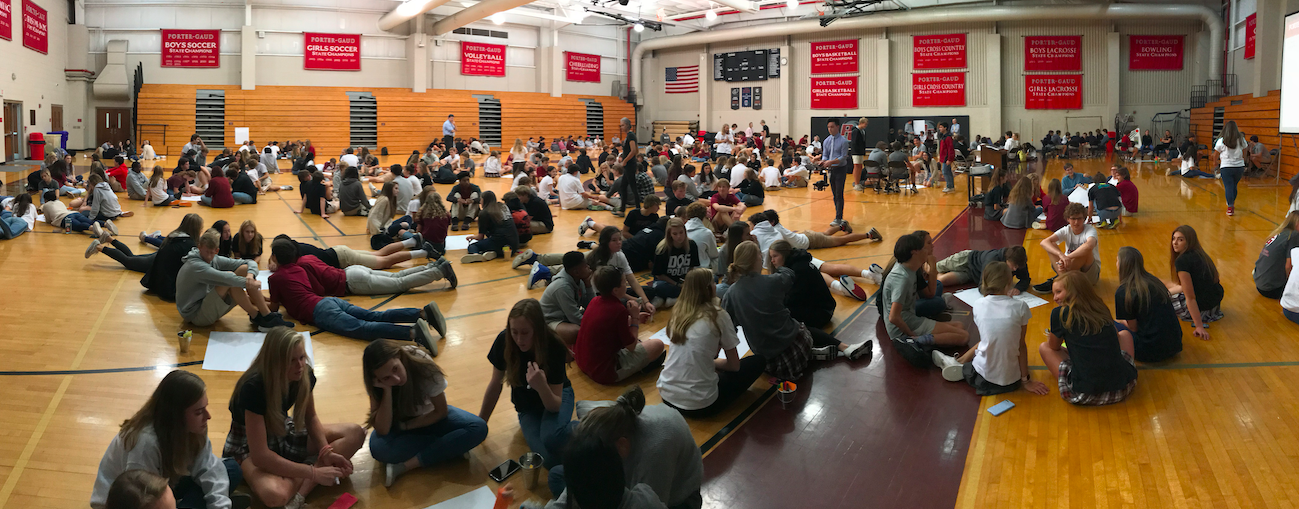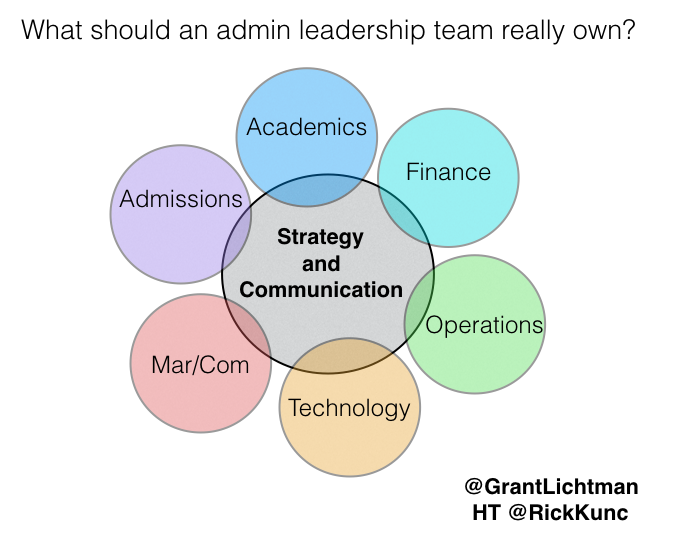Some advice i just gave to some school colleagues as we launch a one-year design project:
Friends,
You are about to launch on what will be a 9-month to one-year design project. For some of you this approach is unusual; for others completely foreign. I want to give you some critical advice at the outset.
 For a period of time, some for a few years and some for perhaps the majority of your lifetimes, you have viewed yourself as a teacher. For the next year, as you participate in this design team, you have to re-view yourself as, first, a learner, and then as a designer. The best way I can put it to you is this: think of yourself as a beautiful hunting dog getting out of long swim at the lake, and give yourself a really good, long shake. I mean this physically, mentally, and metaphorically. Physically stand up, shake yourself, and mentally see the water droplets of “teacher” fly off. It won’t work all at once because you have been soaking in that lake of “teacher mode” for a long time, but if you think about this frequently over the next couple of months, the design process will be infinitely more satisfying. The process of design is not unlike the Hero’s Journey in some ways; there are stages of awareness and awakening, of movement and action, and they have to come in their proper order. We have to start at the beginning.
For a period of time, some for a few years and some for perhaps the majority of your lifetimes, you have viewed yourself as a teacher. For the next year, as you participate in this design team, you have to re-view yourself as, first, a learner, and then as a designer. The best way I can put it to you is this: think of yourself as a beautiful hunting dog getting out of long swim at the lake, and give yourself a really good, long shake. I mean this physically, mentally, and metaphorically. Physically stand up, shake yourself, and mentally see the water droplets of “teacher” fly off. It won’t work all at once because you have been soaking in that lake of “teacher mode” for a long time, but if you think about this frequently over the next couple of months, the design process will be infinitely more satisfying. The process of design is not unlike the Hero’s Journey in some ways; there are stages of awareness and awakening, of movement and action, and they have to come in their proper order. We have to start at the beginning.
 Some of you have not been in pure “learning” mode for many years. Perhaps you did a thesis in graduate school? Or has it been much longer than that? For the first couple of months of this process, you must be a pure learner. You must explore like a child in a new playground. Here are some words upon which to meditate that describe your role in this initial phase of work: observer, traveler, chronicler, questioner, researcher, gatherer, explorer, or just searcher.
Some of you have not been in pure “learning” mode for many years. Perhaps you did a thesis in graduate school? Or has it been much longer than that? For the first couple of months of this process, you must be a pure learner. You must explore like a child in a new playground. Here are some words upon which to meditate that describe your role in this initial phase of work: observer, traveler, chronicler, questioner, researcher, gatherer, explorer, or just searcher.
At this point you are not a teacher and you are not a problem solver. You each have joined a design team, and in doing so, you immediately have ideas about how to solve the problem you think is defined for your team. You have to reject those thoughts. Not only must you let go of those nascent solutions that are growing in your minds, you have to remember that you don’t even know the problem that you have to solve! At this point you have merely a challenge, a question to guide your pathway of learning. We can’t design solutions until we know the problem we are trying to solve, and you will not know that problem for about 3-4 months.
Your job in the next 2-3 months is to ask, listen, dig deeply, learn, ask some more, think of new questions that will broaden your scope and understanding, and chronicle what you learn…nothing more. Go where the ideas and experiences of others take you, not where you think you want to go; there will be plenty of time later for that.
There will be times when you are frustrated; now might be one of those times! You will say, “let’s get on with it; the solution is right in front of us!” I know; every design group goes through this. But in the end, you will find that the solutions you design are better for the process. Some of these design challenges are really tough. If they were easy someone else would have already solved them and we would be tackling something else.
So please respect the process. I promise you we will get “there” in the end. Ask your team members or me for help when you get frustrated. Stand up and give yourself another good shake to let go the preconceptions that come from years or a lifetime of knowing answers and solving problems quickly. Enjoy the chance to be a student again and focus on the joy and challenges of unbounded learning!





Leave A Comment